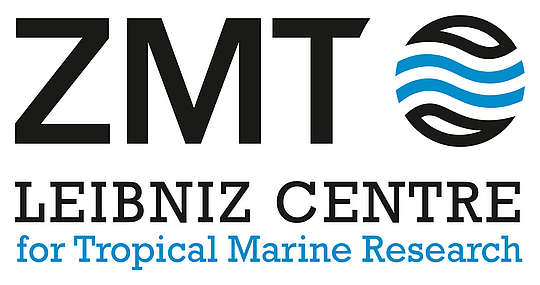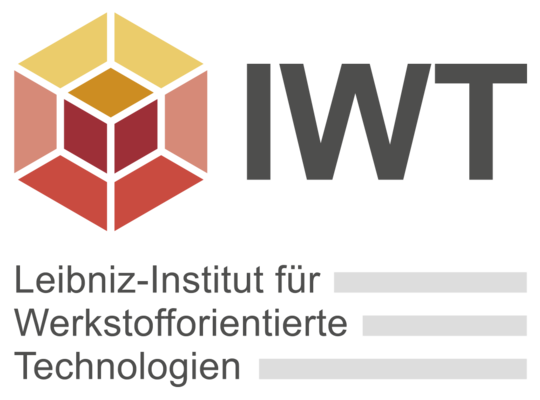
Are you coming to Bremerhaven with your family?
The following pages contain information related to school enrollment for children, arranging day care, as well as information about family support services.
For admission for the regular academic year starting in August, school and kindergarten enrollment deadline is end of January of the same year. In case you cannot plan that far ahead or are not sure where you will be living in Germany, enrollment at mid-semester is also possible.
To look up information on kindergartens in Bremerhaven visit the website Kindertagesstätten Bremerhaven. For information about schools visit Schulwegweiser Bremerhaven.
KiTa/Kindergarten

Kindergartens, Daycare Centers, Nurseries
If you travel to Germany with young children, we recommend that you register your child for child care as early as possible, as spots may be limited.
Children aged 3 to 6 can be enrolled in a kindergarten. Most kindergartens begin at 8:00am and go up until 5:00pm at the latest.
Children under 3 years of age attend a nursery. Nurseries normally have the option of full-day care with lunch included. Just like the kindergartens, the spots at the nurseries are very limited in Bremen and Bremerhaven, and we strongly recommend that you plan ahead.
Depending on options and services offered, costs for child care can vary greatly. In public institutions prices are based on the parents' income. You can find further information here.
Further information on daycare centers can be found here as a download.
All daycare centers in Bremerhaven are listed here.
Child day care in Bremerhaven
In Bremerhaven there are some childcare offers. Some offers for day care in the area of KiTa and crèche can be found under this link.
Insitute Internal Offers
If you are employed by AWI, you can benefit from a comprehensive family package.
AWI's Family Office provides you with expert advice on how to combine work and family. In addition to support in organizing childcare, flexible care and creative vacation programs, the institute also offers its own toddler group for 0-3 year olds.
Childcare through Daycare Parents
Another option for child care are also nannies, called 'Tagesmütter', who take care of children in their own homes. 'Tagesmütter' normally work at their own homes and have multiple children in their care. Although the child care is located in their private homes, all nannies must be certified. You can find in-home child care services through the newspaper or Child Care Services of Bremen. There is also a good overview provided by the PiB.
If you need a babysitter for an evening or for a few hours, word-of-mouth referrals are common. However, there are also websites like betreut.de, babysits.de and yoopies.de which might be helpful. Additional Care- and Household Services also include, among others, Vacances.
Schools

School attendance is compulsory for all children living in Germany from the age of 6 to 15. Attendance at public schools in Germany is free of charge.
In Bremen and Bremerhaven, children attend the 4-year elementary school from the age of 6. After that, parents are free to choose a Gymnasium or Oberschule for their children. Private schools are also permitted.
At the Oberschule, all children are taught together and all degrees offered by the general education schools can be earned: The Abitur (general university entrance qualification) is usually attained after 13 years of schooling at the end of the three-year Gymnasiale Oberstufe. Secondary schools may also offer the option of taking the Abitur examination after only 12 years of schooling. The Gymnasiale Oberstufe then begins after the 9th grade. The Abitur entitles students to study at all universities and technical colleges and is now also a prerequisite for a number of apprenticeship professions. The Mittlere Schulabschluss (equivalent to the Realschulabschluss) can also be earned at the end of the 10th grade. It is also a good basis for many apprenticeship occupations, but also forms the basis for school-based vocational training at vocational schools or, if a certain grade point average is achieved, for attendance at a specialized secondary school, which opens the way to study at a university of applied sciences. The Erweiterte Berufsbildungsreife (equivalent to the extended Hauptschulabschluss) is awarded at the end of the 10th grade. It is the basis for many training occupations in dual training (training in the company supplemented by attendance at vocational school) or for attendance at vocational schools - full-time school-based programs in the vocational schools.
At the Gymnasiums, children are taught from grade 5 to 12 with the goal of graduating from high school after eight years (G8). The gymnasium course of education leads to an in-depth general education, is geared toward studies and careers, and allows students to set their own individual priorities. The course of education is offered in school centers of secondary level I and II and in comprehensive high schools.
All schools and information about Bremerhaven can be found under this link.
Play Groups / Sport Groups
Family Centers are located in the respective district and welcome all families. They are places of exchange, advice and additionally offer many program points for children.
Here you can find an overview of the family centers in Bremerhaven.
On Wednesdays and Saturdays, the pedestrian zone is transformed into a small adventure land for children. The SpielspaßMobil offers a wide variety of play and exercise activities, such as soft bowling. Your family is cordially invited.
Holiday Child Care
Especially during the school vacations it is difficult to combine work and family. Therefore, the city of Bremerhaven offers a varied program during the vacation periods.
The AWI Family Office also offers an extensive vacation program for your children.
Emergency Care
Wenn die gewohnte Kinderbetreuung ausfällt oder es ähnliche Situationen gibt, in denen kurzfristig eine Kinderbetreuung benötigt wird, können sich Beschäftigte der Universität Bremen mit gutem Gewissen an die Notfallmamas wenden. Die Betreuung kann für insgesamt 14 Stunden im Jahr kostenlos in Anspruch genommen werden. Weitere Informationen und wie Sie Ihren Betreuungsbedarf anmelden können, finden Sie auf der Seite der Notfallmamas.
Financial Support for Families
The German government provides financial assistance to children. In some cases, this also applies to international guests depending on the length of their stay. A general requirement is that one parent must pay income taxes.
Ask the Welcome Center for more information.
The Ministry of Family Affairs, Senior Citizens, Women, and Youth is in charge for the distribution of this financial aid.
Child Allowance
Child allowance, called 'Kindergeld', is paid until the child is 18 years of age, or 25 years of age if he/she is enrolled in any kind of a state-certified eduational or training program.
To receive the child allowance, Germany must be the applicant's habitual residence. If the habitual residence of the applicant is elsewhere in the EU, he/she can still apply for child allowance given that the person is subject to unlimited income tax liability in Germany.
For the first and second child the allowance is ca. 194 euros per month; for the third child it is ca. 200 euros and for any additional children it is ca. 225 euros.
Applications must be filed in written form with the local Family Office ('Familienkasse'). You can download the official document here, as well as the necessary additional document regarding the information of your child/children. For further information please visit the official "Kindergeld-Website". On the bottom of the page, you can also find the documents in various other languages.
Child Supplement
In addition to child allowance, you might want to inform yourself about the so called “child supplement”. This is an additional financial support offered by the government for families with children under 25 and who already receive “kindergeld”. You can find out whether you are eligible for child supplement by using the online calculator KiZ-Lotse. Generally, all families who need the Kinderzuschlag in order to (comfortably) afford a living are eligible. For further information, please have a look at the website of the Bundesagentur für Arbeit and the Deutscher Gewerkschaftsbund.
Parental Allowance
If you are a citizen of a Member State of the EU, the EEA States or Switzerland, you may be eligible for parental allowance if you live in Germany.
Non-EU citizens are eligible for parental allowance if their residence in Germany is deemed permanent according to the type of residence title they possess and their access to the employment market. You fulfil this requirement if you hold a settlement permit. You also fulfil this requirement if you hold a residence permit and are entitiled to work/have already worked legally in Germany. Non-German parents are not eligible for parental allowance if they hold a residence permit for study purpose or in conjunction with a work permit for a specified maximum period.
Contact
Julia Holz
- Tel.: +49-421-218-60381
- Email: julia.holz@vw.uni-bremen.de
Arbeitsstelle Chancengleichheit
Bettina Schweizer
GW2 A4169
- Tel.: +49-421-218-60182
- Email: chancen3@uni-bremen.de












